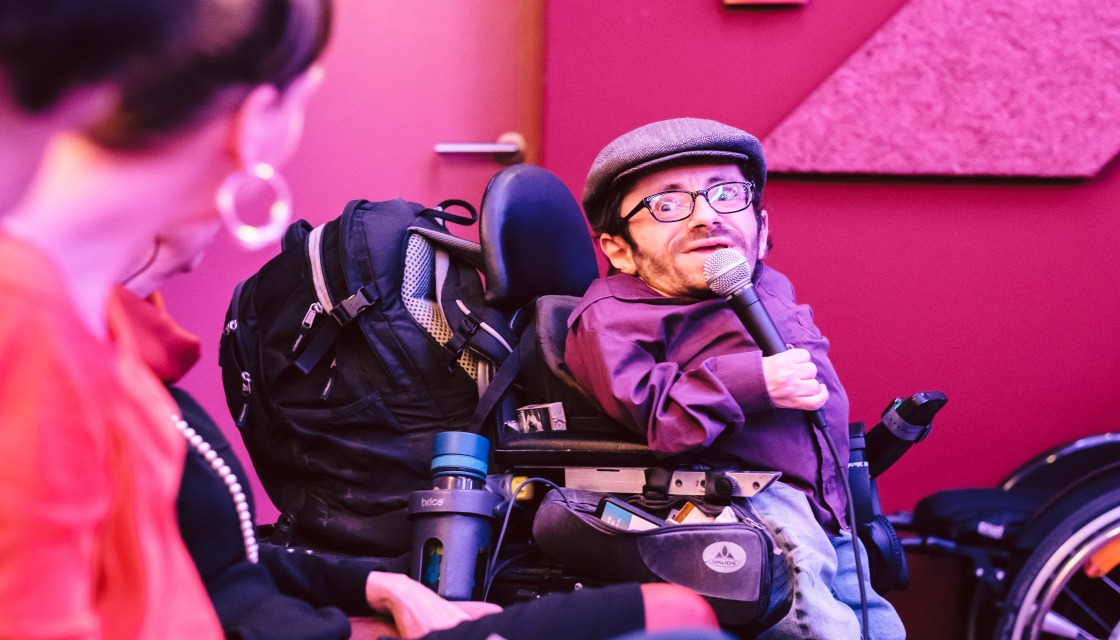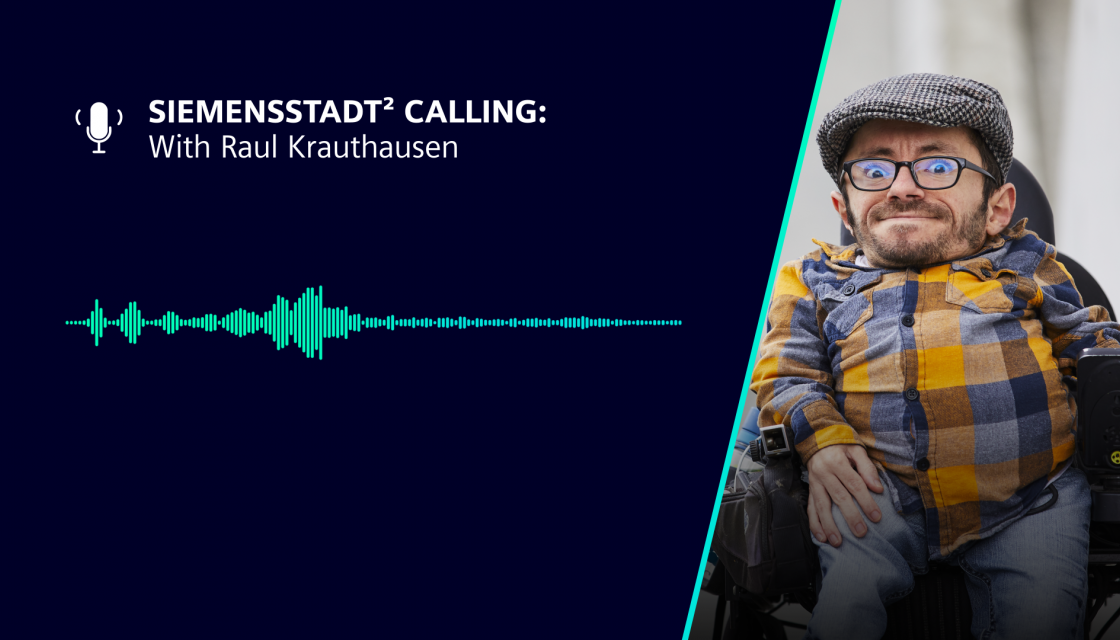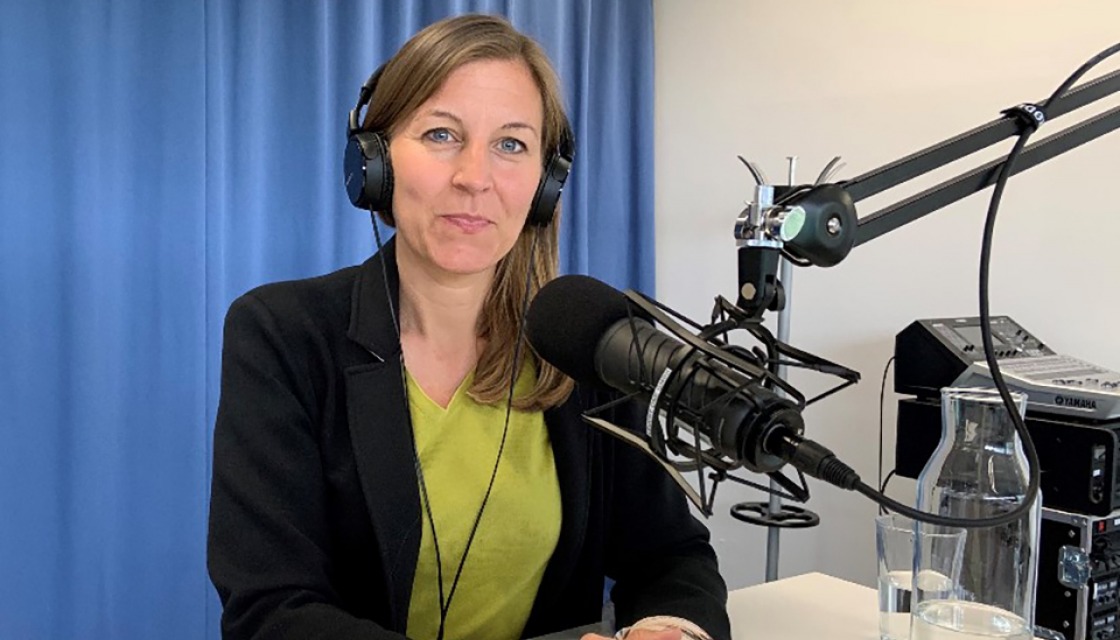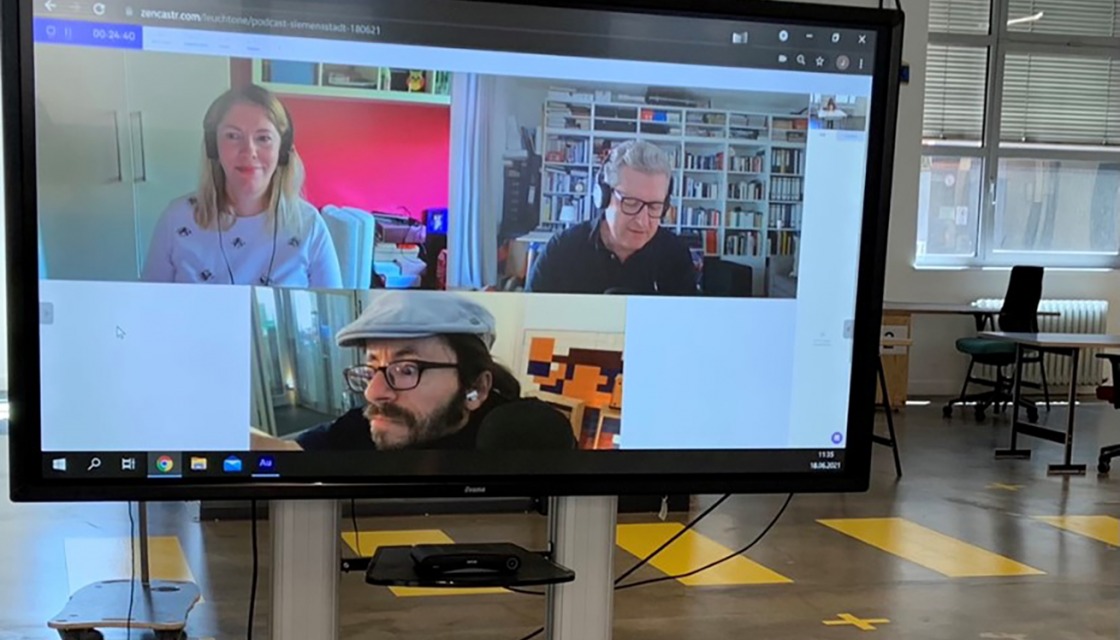"As urban planners one should rather ask the question, where do we create or how do we manage to make every place a place of encounter for people with and without disabilities. This begins with accessibility and then, of course, includes attitudes. But attitudes can only change when we meet each other, not the other way around. We can't change attitudes first and then perhaps build an elevator. That hasn't worked for the last few decades. Maybe we first build the elevator and then the attitudes change by themselves..."
Raúl Krauthausen
You want to hear what else Raul Krauthausen has to say and what Siemensstadt² is planning in terms of accessibility and inclusion? Then listen in (only German):
Would you like to read in already?
Sarah (moderator):
I would love to start with a certain format. You all know this one, especially Raúl. It's a format where you always learn a lot about your guests. And since I'm curious, it should be really fun. I will give you the start of a sentence and it would be wonderful if you complete them. Raúl, of course because you're from outside of Siemens, we'll start with you:
Accessibility for me is...
Raúl:
... to do what I want to do, despite my disability, without having to ask strangers for help.
Sarah (moderator):
When I hear the word smart city....
Raúl:
Or if it's another buzzword, like multimedia, blockchain or artificial intelligence. What does smart mean, who is it smart for? Is it only smart for the big five companies or is it really smart for citizens as well? And I sometimes feel like mayors and city planners often have ideas sold to them by big tech companies without understanding exactly how they may then become dependent on those companies.
...
You want to read the whole interview? Please feel free to download the read only version:



